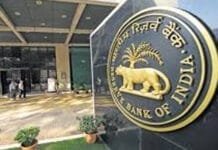
The United Forum of Bank Unions (UFBU), an umbrella organization representing nine major bank unions, has declared a two-day nationwide strike on March 24 and 25. This collective action is in response to long-pending demands, including adequate recruitment, regularization of temporary employees, and the implementation of a five-day workweek in the banking sector. This announcement, made on Monday, is expected to impact banking services across the country, potentially disrupting transactions and financial operations.
Who is Behind the Strike?
The United Forum of Bank Unions (UFBU) represents nine bank unions, including:
- All India Bank Employees Association (AIBEA)
- All India Bank Officers Confederation (AIBOC)
- National Confederation of Bank Employees (NCBE)
- All India Bank Officers’ Association (AIBOA)
- Bank Employees Federation of India (BEFI)
- Indian National Bank Employees Federation (INBEF)
- Indian National Bank Officers Congress (INBOC)
- National Organization of Bank Workers (NOBW)
- National Organization of Bank Officers (NOBO)
These unions collectively represent lakhs of bank employees and are mobilizing nationwide support for this protest.
Key Demands of the United Forum of Bank Unions
The UFBU has presented a set of urgent demands to improve working conditions and ensure fair treatment of bank employees. The primary demands include:
1. Adequate Recruitment in All Cadres
- The banking sector faces a severe shortage of employees, resulting in excessive workload on existing staff.
- The UFBU demands immediate recruitment to fill vacancies and maintain efficient banking operations.
2. Regularization of Temporary Employees
- Thousands of bank employees work on a temporary or contractual basis without job security.
- The demand is to regularize these employees, ensuring fair wages and stable employment conditions.
3. Implementation of a 5-Day Work Week
- Bank employees currently work six days a week, leading to increased stress and burnout.
- A five-day workweek, similar to other sectors, is a key demand to improve work-life balance.
4. Protection of Job Security
- With the rising trend of outsourcing banking jobs, job security is a major concern.
- The unions are strongly opposing the privatization and outsourcing of permanent jobs.
5. Withdrawal of DFS Directives on Performance Review
- The Department of Financial Services (DFS) has introduced stringent performance reviews.
- Employees demand the withdrawal of unfair performance assessments, which they argue could lead to unjust terminations.
6. Withdrawal of DFS Directive on Performance Linked Incentives (PLI)
- The DFS has linked incentives to unrealistic performance targets.
- The unions call for fair evaluation metrics and oppose the imposition of arbitrary performance-linked incentives.
7. Workplace Safety for Bank Employees
- Incidents of verbal abuse, physical attacks, and undue pressure on bank employees are rising.
- The UFBU demands strict security measures and laws to protect bank officers and employees from workplace harassment.
8. Appointment of Employee/Officer Directors in Public Sector Banks
- Public sector banks currently lack adequate representation from employees in decision-making.
- The unions are pushing for the appointment of employee and officer directors in public sector banks.
9. Resolution of Pending Issues with the Indian Banks’ Association (IBA)
- Several long-standing issues, including wage revisions and service conditions, remain unresolved.
- The UFBU demands an immediate resolution of these disputes through negotiations.
10. Increase in Gratuity Limit to ₹25 Lakh and Tax-Free Status
- The current gratuity limit is inadequate, especially given inflation and rising living costs.
- Employees seek an increase in the gratuity ceiling to ₹25 lakh and demand that it be made tax-free, bringing parity with government employees.
11. Abolition of Unfair Taxes on Employee Welfare
- Employees argue against the income tax levy on concessional benefits.
- The demand is that banks should bear the cost, ensuring that employees do not suffer additional tax burdens.
12. Protection of National Interests – Maintain 51% Government Equity in IDBI Bank
- The unions oppose the dilution of government stake in IDBI Bank.
- Maintaining at least 51% government equity is essential to protect national interests.
What the Unions Oppose
The UFBU is not only advocating for positive reforms but also strongly opposing detrimental policies affecting the banking industry. Key areas of opposition include:
1. Micro-Management of Public Sector Banks (PSBs) by DFS
- The unions oppose the interference of DFS in policy matters affecting bank employees.
- They demand that bilateral discussions be prioritized over unilateral government directives.
2. Outsourcing of Permanent Jobs
- The unions strongly oppose the privatization and outsourcing of bank jobs.
- They emphasize that outsourcing permanent roles leads to job insecurity and weakens the industry.
3. Unfair Labor Practices in the Banking Industry
- Many public and private banks have been accused of unfair labor practices, including contract-based hiring.
- The unions are calling for strict regulations to prevent exploitation of bank employees.
Impact of the Strike on Banking Services
With lakhs of employees expected to join the strike, banking operations across India will be significantly affected. Customers should plan ahead to minimize disruptions. The strike may impact:
- Bank Branch Operations – Limited staff may result in delayed services.
- Cash Deposits and Withdrawals – ATMs may function, but bank branches might remain closed.
- Cheque Clearance & Fund Transfers – RTGS, NEFT, and IMPS transactions may face disruptions.
- Loan Processing & Customer Support – Customers may experience delays in loan approvals and issue resolutions.
Conclusion
The upcoming March 24-25 bank strike highlights critical issues in India’s banking industry. While customers may experience inconvenience, the protest reflects growing concerns about employee welfare, job security, and fair labor policies. The UFBU’s demands, if met, could lead to better working conditions, improved banking efficiency, and a more sustainable future for employees in the banking sector.
Bank customers are advised to complete their important transactions beforehand to avoid delays and disruptions. The outcome of this strike will be crucial in shaping the future of India’s banking workforce and the policies governing it.













